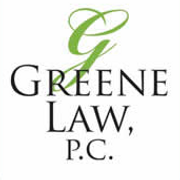
When it comes to estate planning, the importance of drafting a will cannot be overstated. However, the will is not the only document that is a useful part of this process. There are other legal tools that you can use to protect your assets, your family, and yourself. Familiarizing yourself with them by reviewing this short list can help you create a more comprehensive plan.
4 Estate Planning Pitfalls to Avoid
1. Failing to Use Your Gift Allowances
Imagine you have $100,000 set aside for your heirs, and that money will be distributed according to the terms of your will. By the time estate taxes have been paid, your heirs may not see very much of that money. However, you can sidestep that problem by gifting that money to your heirs now. The IRS allows you to gift up to $13,000 tax-free each year, so dividing that inheritance up into annual gifts may be the better way to go. Be sure to consult a lawyer for professional legal advice, because the amount you can give away tax-free changes year to year.
2. Naming Your Estate as a Beneficiary
You may think it’s easier to list your estate as the beneficiary on a retirement account or an insurance policy, but that may actually complicate matters. Once an asset becomes a part of your estate, it’s subject to the probate process and can be liquidated to pay creditors or estate taxes. Naming specific beneficiaries is a better estate planning move, especially because individuals will pay fewer taxes than an estate.
3. Forgetting to Name Powers of Attorney
 At some point, you may sustain injuries or develop an illness that leaves you incapacitated. If you haven’t planned ahead, the courts may appoint someone you wouldn’t trust to make your healthcare decisions and tend to your financial obligations. However, creating powers of attorney allows you to choose who will make decisions about your medical care. You can also appoint a different person to take care of your finances.
At some point, you may sustain injuries or develop an illness that leaves you incapacitated. If you haven’t planned ahead, the courts may appoint someone you wouldn’t trust to make your healthcare decisions and tend to your financial obligations. However, creating powers of attorney allows you to choose who will make decisions about your medical care. You can also appoint a different person to take care of your finances.
4. Failing to Include a Living Trust
There are certain actions that can only be addressed in a will, such as designating guardianship for a minor child. However, dealing with assets is best done with a living trust that supplements the will. Since a living trust is private and transfers assets without going through probate, it can be a better way to ensure your loved ones receive the assets you intend for them. It also allows them to receive their inheritances much sooner.
Estate planning is a complex process, and it’s easy to make mistakes without the assistance of a professional. Greene Law PC provides estate planning services to clients throughout Farmington, CT, and they have the expertise to help you create a fully comprehensive plan. With their help, you can feel confident that your assets are protected and that you and your loved ones will be well cared for in the future. To schedule a consultation, call (860) 676-1336 or visit their website to browse their services.
About the Business
Have a question? Ask the experts!
Send your question

